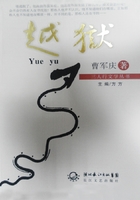In several instances the entries printed in the second volume of the Selden Society publications point to the action of townships as distinct from the manorial court, and placed under it. In Broughton a man distrained for default puts himself on the verdict of the whole court and of the township of Hurst, both villains and freemen, that he owes no suit to the court of Broughton, save twice a year and to afforce the court. Be it noted that the court of Hurst is distinguished from the township, which appears subordinated to it, probably because there were other townships in the manor of Hurst. At the same time the township is called upon to act as an independent unit in the matter. Even so in the rolls of Hemingford, the township which forms the centre of the manor and gives its name to it, is sometimes singled out from the rest of the court as an organised corporation.(87*) When township and tithing coincided, as in the case of Brightwaltham, the tithing gets opposed to the general court in the same way.(88*) Altogether the corporate unity of townships is well perceivable behind the feudal covering of the manor. Mr Maitland says with perfect right, 'the manor was not a unit in the governmental system; the county was such a unit, so was the hundred. So again was the vill, for the township had many police duties to perform; it was an amerciable, punishable unit;not so the manor, unless it coincided with the vill.'(89*) And then he proceeds to suggest that the true explanation of the manor is that it represents an estate which could be and was administered as a single economic and agrarian whole. I am unable to follow him entirely as to this last point, because it seems pretty clear that the open field arrangements followed the division into townships, and not those into manors. From the point of view of the services, of the concentration of duties of the tenantry in regard to the lord, the manor was a whole, and for this very reason it was a whole as regards geldability, but this is only one side of the economic structure of society, the upper side, if one may be allowed to say so. The arrangement of actual cultivation is the other side, and it is represented by the township with its communal open fields. Now in a great many cases the estate and the community fitted into each other; and of these instances there is no need to speak any further. But if both did not fit, the agrarian unity is the township and not the manor. The open field system appears in this connexion as outside the manor, and proceeding from the rural community by itself.
Let us sum up the results obtained in this chapter.
1. The village communities contained in the manorial system are organised on a system of self-government which affords great help to the lord in many ways, but certainly limits his power materially, and reduces him to the position of a constitutional ruler.
2. The original court of the manor was one and the body of its suitors was one. The distinction between courts for free tenants and customary courts grows up very gradually in the fourteenth century, and later.
3. The steward was not the only judge of the halimot. The judgment came from the whole court, and its suitors, without distinction of class, were necessary judicial assessors.
4. The court of ancient demesne presents the same elements as the ordinary halimot, although it lays greater stress on the communal side of the organisation.
5. The conveyancing entries on the rolls do not prove the want of right on the part of the peasant holders. On the contrary, they go back to very early communal practice.
6. The rule which makes the existence of the manor dependent on the existence of free suitors is derived from the conception of the court as a court of free and lawful men, taking in villains and excluding slaves.
7. The manor by itself is the estate; the rural community and the jurisdiction of the soke are generally fused with it into one whole; but in some cases the two latter elements are seen emerging as independent growths from behind the manorial organisation.
NOTES:
1. A good specimen of the accusations which might be made against a manorial agent is afforded by the Court-rolls of the Abbey of Ramsey. Seld. Soc. ii. p. 95.
2. Seld. Soc. ii. 22: 'Et dicit curia quod tenementum et una acra servilis condicionis sunt et una acra libere.'
3. Coram Rege, Pascha 9 Edw. I, 34, 6: 'Messarius abbatis et messarius villate.'
4. Okeburn Inqu. 56 (Add. MSS. 24316): 'Eligere debent unum messarium de se ipsis et domini de ipso electo poterunt facere prepositum.'
5. G1oucester Cart. iii. 221: 'Prepositus eligetur per communitatem halimoti qui talrin eligant qui ad suam terram propriam excolendum et cetera bona sua discrete et circumspecte tractanda idoneus merite notatur et habeatur, pro cuius drfectibus et abmittendis totum halimotum respondeat, nisi ubi urgens necessitas aut causa probabilis illud halimotum coram loci ballivo rationabilem praetendere poterit excusationem.' Cf Walter of Henley, ed. Lamond, pp. 10, 64, 66.
6. Seld. Soc. ii. 12: 'Nicholaus filius sacerdotis... et Robertus de Magedone... in misericordia quia contradixerunt tallagium quod positum fuit super eos per vicinos suos.' Glastonb. Inqu. of 1189, p. 33: 'Totum manerium reddit de dono 73 solidos et 4 den.
sicut homines ville illud statuunt.'
7. Ramsey Cart. i. 401: 'Sunt in scot et in lot et in omnibus cum villata.' Spalding Priory Reg., Cole MSS. xliii. p. 283: 'Libere tenens tacit fossa tum maris et omnes communas ville secundum quantitatem bouatae.'
8. Ramsey Cart. i. 398: 'Henricus le Freman solebat esse in communa villatae, ut in tallagio et similibus. Nulla inde facit.'
p. 394 (a villager does not pay his part of the tallage), 'quod quidem tallagium tota villata et ad magnum ipsorum gravamen hucusque persolvit.'
9. Glastonbury Cart., Wood MSS. i. f III: 'Si nul soit enfraunchi de ses ouvrages dont la ville est le plus charge.'















